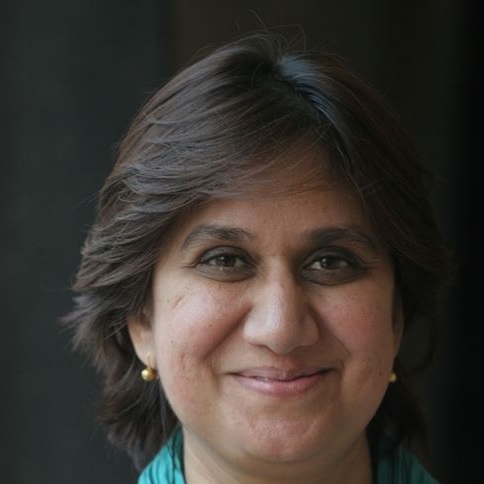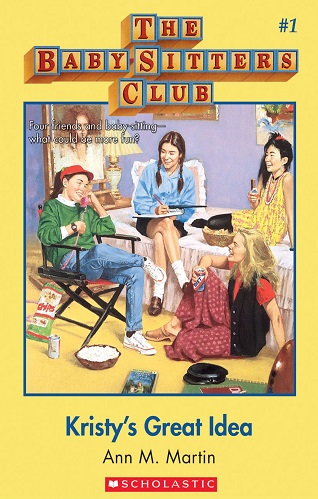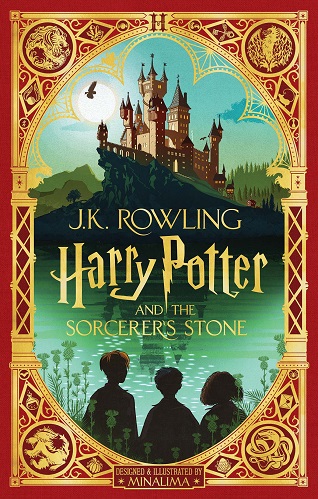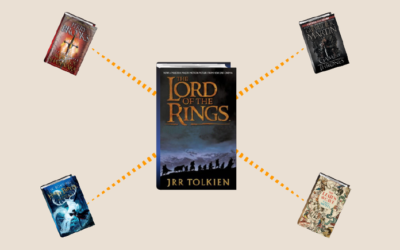Feature
Why Children Should Write Fanfiction
When an avid reader closes the covers of a book, she takes a moment or two to emerge from that universe to the world of the living. More often than not, a part of the reader stays behind in the bookish universe thinking, ‘What if Harry Potter had been sorted into Slytherin? What if Charlie had decided to make noodles in his chocolate factory? What if Pippi Longstocking’s dad came back from the pirate islands?’
Fanfiction emerges from this rich world of what-ifs and why-nots. It involves writing extended stories about literary characters or plots from the universe of books as well as TV and film. In her definitive book, Fic: Why Fanfiction Is Taking Over The World, Anne Jamison mentions that almost all the popular books from Pride And Prejudice to Twilight and Harry Potter have legions of fans who have stretched the stories of their favourite works and made them their own.
However, fanfiction is much more than an extension of the original. It is a genre created by passionate and highly invested writers who also double up as readers of these works. And since young fans are emotionally invested in the universe of these books, writing fanfiction is a great way to get younger readers to take their first steps in writing as well as creative expression in the form of any other media.
Baby Steps in Creative Expression
For children, suspension of disbelief comes easily, given how immersed they become in a world that brings them such gratification. The world of books surfaces into reality in ever so many ways. As a child, I lived in Banjara Hills in Hyderabad at a time when ‘development’ was still to make its way there. For the most part, Banjara Hills was a wide-open space strewn with enormous boulders and shrubs. For children like me, avid readers with fertile imaginations, the landscape was just what we needed to play out our beloved stories.
An enormous boulder that was difficult to climb became our Secret Seven clubhouse that no one could access without a password. A large tamarind tree with roots that lay partially above the ground became the site upon which our imaginary plane landed à la The Valley of Adventure. Here, we cooked up a high tea with mango leaves for pretend lettuce and mud cakes for meat pies.
Just like we enacted stories from our books in the outdoors, other children play out their book-stories with their dolls (and other toys) or build physical props like blanket tents to imagine different worlds in. So vivid is this immersion into the book world that it’s hardly surprising to note that when children make their first foray into writing, it will almost always reflect their reading.
I see this happening frequently when I’m asked to judge writing competitions in schools. Children write stories that are most often set in some Western or fantasy land, the protagonists have names like Julian and Hazel, and there are plenty other references that are clearly drawn from the books they have loved. I would initially point these out and recommend that children draw stories from the reality around them, but I soon stopped. Where’s the fun in writing if you can’t escape into a more exotic world! More importantly, I have found that imitating our favourite writers is the first step in developing a voice of our own.
And that is where fanfiction becomes the starting point in a writers’ journey.
Fanfiction gives aspiring writers a ready framework to start exploring their storytelling skills. Author Meg Cabot, hugely popular for her Princess Diaries series, talks about writing Star Wars fanfiction as a tween on her blog. She says, ‘I think writing fanfiction is a good way for new writers to learn to tell a story. The good thing about writing fanfiction is that the characters and basic plot are already set up, so new writers can concentrate on dialogue, or further plot development. Basically, the author has already created a world for the new writer to play around in, and that is a great way for new writers to learn the skills they will need in order to create their own universe.’

(Image via The Better India)
Getting Started
To get them started, as parents or adults, we can talk to children about the books they love, question them with what if’s and encourage them to articulate their views through writing, art or videos.
Technically, there are many directions that fanfiction can take. Children can stay true to the canon or the existing text and explore the ‘what-happened-after’. The extension can be to the plot or the story of a character. Children could also choose to insert themselves into the story as the narrator or a character. Fanfiction also allows writers to make different book universes collide – for example, take Harry Potter to Camp Half-Blood. The idea is for them to push the envelope in terms of their imagination and get as creative as they like.
Once they have created it, encourage them to share it with other fans. Since being a fan, by definition, means that you already belong to a group of children with similar interests, their writing already has an interested audience. In fact, for older children, sharing fanfiction is an important part of the writing experience. Fanfiction writers share their work on online writing communities like Fanfiction.net, Archive Of Our Own (AO3), Commaful, etc. Not only is their work read by other fans there, it is also critiqued, thus helping them develop their story and writing skills further. Often, it also helps them see and empathise with other points of view.
Children’s author Parinita Shetty, who is currently researching teen fandoms as part of her PhD, believes that fanfiction is enjoyable and more meaningful because it’s shared: ‘Fan communities act as informal learning environments where fans learn from each other’s diverse opinions and multiple perspectives.’
A note of caution – all online writing platforms are meant for children above the age of 13, often have dark or explicit content, and are largely unsuitable for younger children. Instead, you could encourage your children to form book clubs or reading circles. Or even clubs dedicated to their particular fandom. You could also help them develop their own blog, but do ensure that the comments and responses are monitored here.
More Than Words
According to Shetty, fanfiction created by children is not just limited to writing. It also comes in the form of video, art, memes, etc. What’s more, she believes that creating multiple kinds of fan media not only develops writing skills but also a whole range of more fundamental skills. She says, ‘Based on what kind of media young people create, it promotes critical thinking, critical literacy, emotional intelligence, creative problem-solving, analytical and technical skills (like writing, art, learning to use unfamiliar technology, etc).’
Shetty’s research shows that children also use fanfiction to explore issues that are important to them – bullying, divorce, gender issues, peer pressure. ‘Young fans explore their favourite fictional worlds and characters in a range of ways and focus on elements which are most important to them,’ she says. Often, they bring these aspects into their retelling to right a world that appears flawed or non-inclusive to them, and also share their point of view through this to the world. In her New Yorker article on fanfiction, Stephanie Burt, Professor of English at Harvard says, ‘Fanfic can also let writers, and readers, ask and answer speculative and reflective questions about our own lives, in a way that might get others to pay attention.’
Just like Cabot, best-selling author Rainbow Rowell and a host of other writers had their first taste of writing with fanfiction. Shetty, too, started off by writing extended stories set in the worlds of Sweet Valley Kids and Harry Potter, an experience that she greatly values. ‘I created my own school, and characters that were a combination of kids from Sweet Valley Kids and The Baby-Sitters Club,’ she says. ‘As someone who came from a mainstream SSC school in Mumbai where creative exploration of literature and language were not available, online fan communities taught me a lot about both writing and thinking.’
As good a reason as any to encourage your child’s favourite book obsession and turn it into a personal work of art.

Lubaina Bandukwala has been in children’s publishing as a writer, editor and festival curator for a decade. She founded the Peek A Book Literature Festival for children, which is now in its fourth year.
Read her articles here.







This is a very useful prescription, Lubaina. I keep hearing how children are no longer reading as much. What better way to encourage reading than by making it more participatory? And I agree that it’s a good way for a child to dip their toes into the writing pool.
I’ve been curious about the world of adult fanfiction, especially slash fiction — what functions it serves, why it draws mostly women, etc. I particularly like your point that children use fanfiction to explore, in a safe environment, issues that matter to them. I think that’s true of all play — explaining why, for instance, art therapy draws out issues that patients feel uncomfortable discussing directly. I’ve seen this discussion of sensitive issues, and this reach for inclusiveness, happening in adult fanfiction.